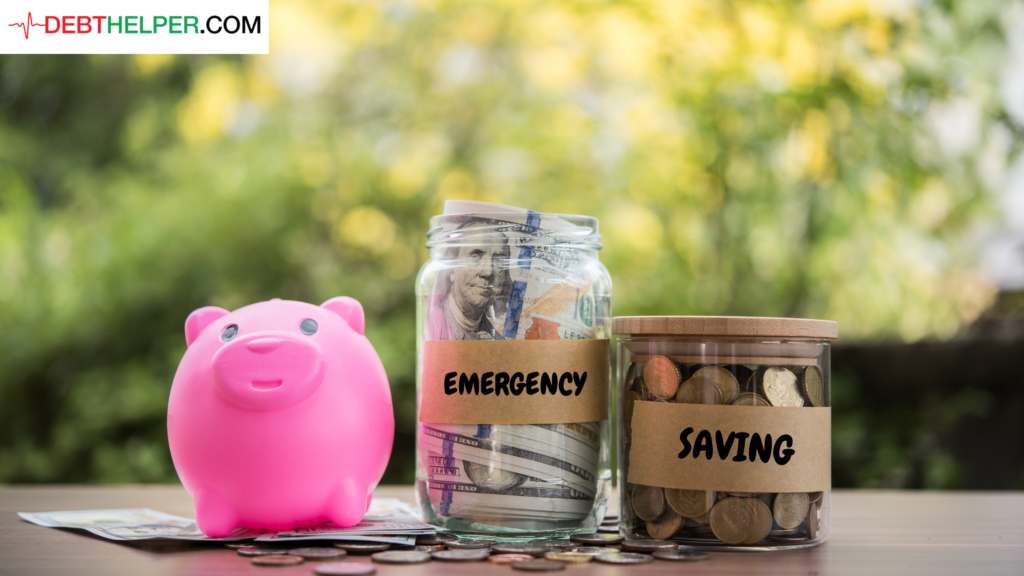
A thriving emergency fund is an essential piece of a healthy financial picture.
You’ve heard this a million times before. The basics of emergency funds have been covered in depth. We’re used to hearing discussions on why they’re important and how large they should be.
But do you know what we don’t hear much about? How freakin’ boring they are!
Let’s be honest: There’s nothing sexy about building an emergency fund. Sure, it’s possible to get fired up for the initial push. You can take advantage of small, specific tips to create an early spark. But what about going from $1000 in savings to six months of expenses? Eventually the excitement fades.
Testing a fresh approach can change everything. Sometimes all it takes is a minor shift in mindset. Whether you’re just getting started or need a push towards the next major benchmark, here are eleven tips to help spice up your saving:
Treat your emergency fund as self-insurance. An emergency fund is just another way to spread risk. You’re spreading the risk that something unexpected pops up and wrecks your budget or causes you to fall into a cycle of borrowing. All too often, though, we’re worried about chasing 0.5% interest-rate increases or the lure of tying up our money in a bigger, better deal. Stop fretting. Find a high quality savings account with a decent return and plant your money there. It’s not part of your investment portfolio — it’s part of a diverse insurance plan.
Narrow your definition of an “emergency.” Having savings in the bank can cause us to justify some unusual behavior. Suddenly, every unplanned expense becomes an emergency. How can anyone be expected to build a robust emergency fund when they’re tapping into it every other month? Fight back by clearly defining what you will consider an emergency upfront. You’ll be shocked how fast your fund will prosper when you don’t constantly use it as a crutch.
Over-budget for miscellaneous expenses. So how do you deal with those unplanned expenses that aren’t valid emergencies? Expect the unexpected. Aim high on your miscellaneous budgeting category. You’ll break your budget less often and avoid the habit of reaching for your emergency fund. When these expenses do come up, take note, and add them into your budget. Eventually you’ll develop the ability to project nearly all non-emergency expenses ahead of time.
Live a pay raise behind. The next time you get a promotion, don’t fall victim to lifestyle inflation. Take the increase in monthly income and set up an automatic transfer to your emergency fund. When applied to retirement, this technique is often referred to as “pay yourself first.” As long as you can continue to live within your means, it works like magic. Looking for a place to start? Scale back one pay raise. Budget using your old income and start transferring the extra today!
Round up your budgeting categories. The simpler you make the budgeting process, the more likely you are to stick to it. One way Courtney and I have been able to simplify is by rounding our categories and expenses to convenient whole numbers. If your debt payment is $82.31 per month, budget $85. If your mortgage is $1368 per month, budget $1400. Not only will budgeting seem easier, but at the end of the month you’ll have a buffer in your account which you can sweep into your emergency fund.
“Snowflake” your unplanned income. The term snowflaking is a nickname given to the process of applying any amount of extra money (no matter how small) to your debt with the lowest balance. It’s a neat concept that can help quickly build momentum. There’s no reason this should be limited to paying off debt. Anytime you bump into a small windfall, immediately apply it to your emergency fund. Attack it with passion!
“Re-fund” your savings. You know what the perfect amount is for your first emergency fund is? Whatever the amount of your tax refund check! In a perfect world, we wouldn’t be loaning the government our money for the better part of a year – we’d be earning interest with savings accounts and certificates of deposits. But the truth is millions do. If you’re one of them this year, take the money and jump-start your emergency fund.
Save up for the knock-out punch. This technique starts with selecting a base level for your fund. Next, rather than paying extra on your debt or towards a savings goal, pour every extra penny into your emergency fund. Once the fund grows large enough to accomplish the goal and still leave you with the base amount…go for the knock-out. Pay off the debt, book your plane tickets, select a new goal and start the process over. If a true emergency does strike you, chances are you’ll have a little extra buffer.
Focus! Having serious trouble? Make your emergency fund your absolute number-one priority. Channel all of your energy. Pay the minimums on debt. Put your other savings goals on hiatus. (Some respected advisers even suggest halting your retirement savings for a short time!) Only you know for sure what level of intensity is right for you; however there’s a lot to be said for the power of concentrated focus. Put your head down, knock it out, and move on to your other more sexy goals.
Negotiate a “big win.” A broad tip, right? Here’s the point: Use your emergency fund as an excuse to tackle a high-impact project. Need $1000 to get started? Go for it all at once. Ask for a raise, sell one of your cars, or refinance your mortgage. Look at your largest monthly expenses and ask yourself if there is a way you can make a huge impact quickly. Use these opportunities to get comfortable with the basics of negotiation. It’s a skill that’ll pay dividends the rest of your life.
Sell your crap. Kill two birds with one stone. Have an emergency-fund dedicated spring-cleaning session. My suggestion is to create a list of everything you own. Every single item. Go room by room. Nothing has made me want to purge my stuff more than this process. Afterward, set a deadline to sell half of the items on the list. Get passionate and declare war on your stuff. Not only will you feel refreshed, but your emergency fund will be more healthy than ever.
What other ways have you found to spice up your emergency fund? How did you get started? Did you switch it up to maintain motivation? Share your personal experiences below!
Source: Get Rich Slowly





